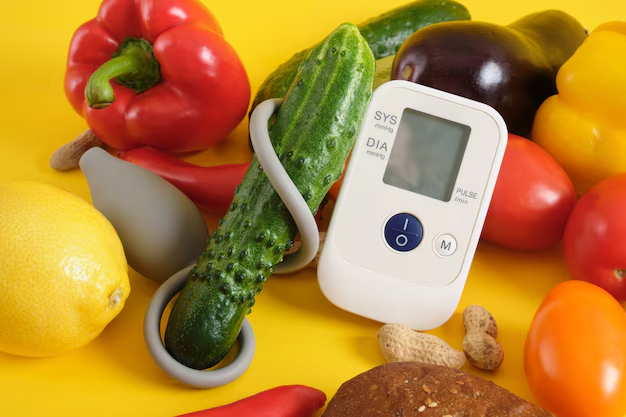Your Guide to Can Diabetics Have Bacon
What You Get:
Free Guide
Free, helpful information about Diabetes FAQ and related Can Diabetics Have Bacon topics.
Helpful Information
Get clear and easy-to-understand details about Can Diabetics Have Bacon topics and resources.
Personalized Offers
Answer a few optional questions to receive offers or information related to Diabetes FAQ. The survey is optional and not required to access your free guide.
Is Bacon a Safe Choice for Diabetics? Here's What You Need to Know
For many people, breakfast isn't complete without the sizzling aroma of bacon wafting through the house. However, if you’re living with diabetes, the choice to indulge in this beloved breakfast staple might require a bit more thought. So, can diabetics have bacon? The short answer is yes, but with some important considerations.
Understanding Diabetes and Diet
Living with diabetes, whether type 1 or type 2, means managing your blood sugar levels diligently. Diet plays a critical role in controlling these levels, which often involves balancing carbohydrates, fats, proteins, and maintaining a healthy lifestyle.
The Role of Bacon in a Diabetic Diet
Bacon is low in carbohydrates, which means it has little direct impact on blood sugar levels, making it appear as a safe choice at first glance. However, bacon is also high in fat, particularly saturated fat, and sodium—factors that can indirectly affect diabetes management and overall health.
Considerations:
- Saturated Fat: Too much saturated fat can increase the risk of heart disease, a condition that people with diabetes are already at an increased risk of developing.
- Sodium Content: Bacon is notoriously high in sodium, which can contribute to increased blood pressure—a common concern for diabetics.
Tips for Enjoying Bacon Safely
- Portion Control: Keep bacon consumption moderate. Consider it an occasional treat rather than a staple in your diet.
- Choose Lean Cuts: Opt for turkey bacon or center-cut pork bacon, which are often lower in fat.
- Cook Wisely: Use methods like baking or grilling to help reduce the amount of fat compared to frying.
- Balance Your Meal: Pair bacon with vegetables or whole grains to create a more balanced, nutrient-rich meal.
- Monitor Blood Sugar Levels: Pay attention to how your body responds after eating bacon and adjust your diet as needed.
Beyond Bacon: Navigating Costs and Health
Managing diabetes effectively extends beyond diet; it also involves ongoing medical care, medications, and supplies. These costs can add up quickly, making financial management another important aspect of living with diabetes.
Financial Assistance and Support
As healthcare expenses grow, exploring financial options and support programs can lighten the burden. Here are some resources that might be of help:
- Government Aid Programs: Look into federal and state health assistance initiatives such as Medicaid or Medicare, which can help cover medication and care costs.
- Financial Assistance for Medications: Pharmaceutical companies and non-profit organizations often provide medication assistance programs to help reduce the cost of diabetes medications.
- Debt Relief Options: If medical bills are piling up, consider exploring different debt relief programs that cater to medical expenses.
- Educational Grants: There are grants and scholarships available for those looking to further their education in healthcare or seeking new career skills to support their income.
- Budgeting Tools: Utilizing apps and services designed to help individuals budget for medical expenses can be incredibly beneficial in managing your healthcare costs effectively.
While managing diabetes can be complex, both in terms of diet and financial planning, the abundance of resources available can help ease the journey, allowing you to live a healthier, more balanced life.
Financial and Support Resources for Diabetics 📊
💼 Government Aid Programs
- Medicare
- Medicaid
💊 Medication Assistance
- Patient Assistance Programs (PAPs)
- Non-profit organization support
💸 Debt Relief Options
- Medical debt consolidation
- Credit counseling services
🎓 Educational Opportunities
- Diabetes-specific scholarships
- Vocational training grants
📱 Budgeting and Financial Tools
- Healthcare budget tracker apps
- Financial planning services
What You Get:
Free Diabetes FAQ Guide
Free, helpful information about Can Diabetics Have Bacon and related resources.

Helpful Information
Get clear, easy-to-understand details about Can Diabetics Have Bacon topics.

Optional Personalized Offers
Answer a few optional questions to see offers or information related to Diabetes FAQ. Participation is not required to get your free guide.


